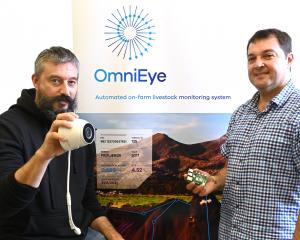Facebook has updated its status to include a relationship with RockMelt, an upstart web browser that revolves around Facebook's online hangout.
The business partnership resulted in the latest update to the Facebook-driven web browser, which RockMelt introduced late last year.
The changes include several new features that ensure RockMelt's web browser will never truly leave Facebook, even as its users surf elsewhere.
RockMelt's third version built Facebook friend requests, messages and notifications into the browser's top panel. That way, users will be able to keep tabs on what's happening on their Facebook pages no matter where might be on the web.
The upgrade also makes it easier for RockMelt users to keep track of their Facebook friends and chat with them from within the browser.
"We view these features as a down payment on our partnership," said Tim Howes, RockMelt's chief technology officer.
Facebook isn't investing any money in RockMelt. For now, RockMelt is subsisting on $10 million raised from a group that included a venture capital fund managed by Marc Andreessen, the co-founder of Web browser pioneer Netscape Communications.
Andreessen also sits on the board of Facebook, but RockMelt CEO Eric Vishria said that connection isn't the main reason why the two companies are working together.
RockMelt got an inside track to Facebook chief executive Mark Zuckerberg after one of his staffers became an early tester of the browser, Vishria said.
That led to an introduction to Zuckerberg and a commitment to give RockMelt the help it needed to include more Facebook features.
"We are always on the lookout for companies that are trying to create great social experiences on the Web," said Ethan Beard, Facebook's director of platform partnerships.
Previous attempts to design web browsers especially for social networking haven't panned out. Flock, an early attempt at building a social web browser, is in the process of shutting down.
The RockMelt partnership provides Facebook with a potential springboard into the web browser market, which has become more competitive since Google Inc. joined nearly three years ago.
Google's Chrome browser now has more than 160 million active users and serves as the hub of a new operating system for a series of lightweight computer notebooks.
RockMelt still hasn't reached its goal of attracting 1 million active users, Vishria said.
He believes that is bound to change as more Facebook users, particularly those under 25 years old, hear about RockMelt. The under-25 group currently accounts for 56 percent of RockMelt's audience.
"They grew up with the social web," Vishria said.












